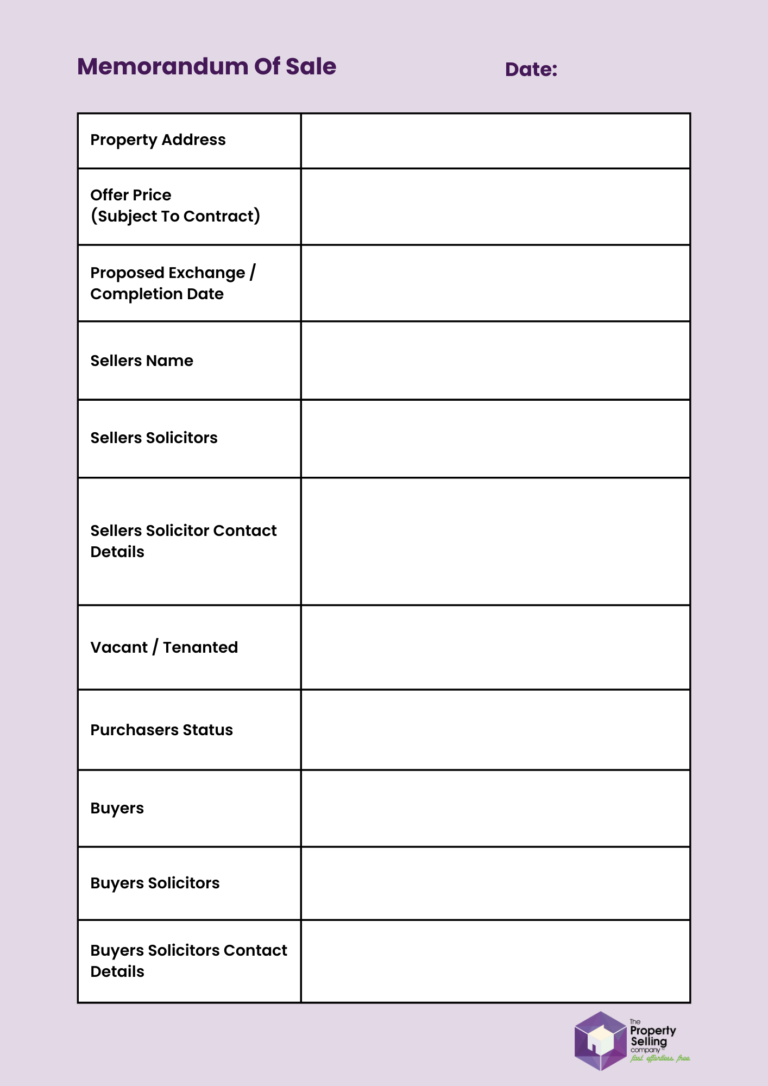
How to Prepare Your House to Make It Sell Quickly
Looking at our top tips to sell your house quickly, how you can add value to your home, and how we can help.

Alexandra Ventress ★ Digital Content Writer
Table of Contents
Putting your property on the market can feel like a daunting prospect, especially if you are looking to sell your house fast. Thankfully there are steps you can take to help make your home appeal to buyers and secure a fast sale.
These steps are referred to as staging or dressing your house for sale and can be a simple and effective way of securing not only a fast sale, but also a good price.
In this blog post, we will be looking at the importance of staging your house for sale, the effect dressing your home can have on your property sale, and a sure-fire way to a quick house sale.
How can I make my house look more appealing to buyers?
The best way to sell a property quickly and make it appealing is by staging or dressing your property. This refers to a way of setting up, or staging, your home in a way that impresses buyers without being too obvious. A well-staged home can be the difference between getting the sale price you want, and the sale price you will settle for.
Is it worth dressing a house for sale?
Whilst it can take a bit of effort to correctly stage your home, it is a good way to sell faster and can increase your sale price. Whilst it is certainly possible to stage your home yourself, if you are willing to pay a little extra, you can pay a professional to stage your property for yourself. However, if you are looking to save money, it is both worth it and possible to stage your home on a budget.
What are the benefits of staging a property for a viewing?
There are many benefits to staging your home for a showing. Not only will it help your home sell faster by securing a quick sale, but it will also attract more buyers. According to a survey done by Movewise, 94% of those surveyed stated that staging a property increases the number of showings it gets and 100% agreed that it leads to higher-quality photos. Another benefit to consider is that it can help you to achieve a higher price compared to those who don’t stage.
Do houses sell better empty or furnished?
When it comes to selling a house that is furnished compared to one that is empty, the furnished house will usually be the one that sells quicker. This is because whilst homes for sale should be tidy and minimalist, they still need furniture to help the seller envision themselves living there. It will also be easier for them to imagine how they will make use of the space. By seeing how your furniture sits in a room, they will be able to compare it against their own.
How to present your house for sale?
Once you have made the decision to put your property on the market, you are ready to start your preparations for viewings. To help you out, we have compiled our top tips for selling your home fast by staging your home for a sale:
Deep clean
First impressions matter so it is important that as soon as your buyers step over the threshold, you need to make sure the property is clean. Deep cleaning is one of the most cost-effective ways to make your property appeal to both possible buyers and local estate agents who may cover to evaluate the property. Although it may sound obvious, if you are looking to find a buyer then the best way to go about it is by performing a deep clean of your property.
This can include shampooing your carpet, washing sofa cushions, mopping, dusting, and polishing. Even making small changes such as these can make a room feel brand new. While it can be costly, it is important not to underestimate the power of professional cleaning, especially when it comes to upholstery and carpets. After all, a clean and tidy house is the key to selling your property fast.
Declutter
When you are staging a home for sale, it is important to make sure the space is clean and clutter-free. This step goes hand in hand with deep cleaning, as the two are usually done consecutively. When you de-clutter, you should aim to throw away anything that you will not be taking with you in the move. It will help give possible buyers a better idea of what the home can look like.
The main advantage of decluttering is that it will help you out when it is time to move. Rather than moving all your unwanted possessions with you from one house to the next, you have the option to cut down on mess and removal fees by getting rid of what you don’t want before the move.
As a rule of thumb, you should be able to look through your cupboards and storage solutions and they should be 75% full.
Freshen up your rooms
One of the most cost-effective ways to give your walls a facelift is with a fresh coat of paint. It is amazing the difference a fresh coat of paint can have on walls and is also friendly on the wallet. When deciding what colour to decorate your walls with, it is a good idea to go for a neutral tone such as beige, grey, white, caramel, or cream.
It may also be worth taking a critical, in-depth look at your home and deciding which furniture you should keep, and which you will put into storage for the duration of the viewings. You should aim to remove any furniture that makes rooms feel small and cramped so that buyers will be looking at an open space that they can mould into their own.
Another aspect that cannot be ignored when it comes to freshening up your home is how the rooms smell. Pets, cooking, smoking, damp, and bins can all produce unpleasant odours which can negatively impact the speed of your sale. This is why you should take special care to ensure bins are emptied before viewings, as well as investing in some reed diffusers, scented sandals, room spray, or flowers to help your room smell clean.
Make repairs
Another key part of preparing your property for home showing is home repairs. Home improvements can help to elevate the price of your home, as they show a well-cared for property. Now is the time to turn your hand to any pesky unfinished DIY projects, broken light bulbs, or breakages that you have meant to fix months ago.
If you are looking to secure the best price, then buyers will want to know that the property they are moving into is well-loved and cared for and is a property that they should want to buy. Every time a buyer notices a problem in the home that needs fixing, they will reduce their offer.
Boost kerb appeal
If you are planning on selling a home, it is critical that you consider kerb appeal in the process. Kerb appeal is considered an important factor by more than 68% of buyers, according to a survey done by the Home Owners Alliance.
Whilst it is an important factor, it does not mean you need to go full gardener’s world on your lawn. Simple changes such as planting flowers, cleaning the patio, cutting the grass, and repainting fences can all make the world of difference.
Neutralise
One of the most important steps you can take to help increase your chances of selling quickly is to neutralise your home. Whilst this may sound like something a sci-fi villain would say before attempting to blow up the earth, it is not quite as scary as it sounds. Neutralising your home is the simple process of removing personal items from your home in order to give it a showroom feel.
In order to make your rooms as neutral as possible, it is important to take the following steps:
- Family photos
- Children’s artwork
- Collectible items
- Trophies and certificates
- Holiday souvenirs
By removing these items, you are giving buyers a blank canvas for their imaginations to run wild with. Instead of looking at someone else’s home, they are looking at their future home. They can imagine what art they would hang on the wall, and where they would put their photos and collectibles.
How do I make my house look good when selling?
When selling your property, it is important that you keep the home staging tips up throughout the entire process. This will keep your property looking sharp and neat and will keep a steady line of interested buyers through your door.
The most important thing to do in order to make your house look good when selling is to make sure your property is clean. A clean and neat property is the key to not only selling your property quickly but also achieving the best price possible. Whilst it is not always possible to deep clean before every showing, you can always do quick tidy-ups beforehand, using storage space to your advantage to keep clutter out of sight.
Which areas of my home can affect the asking price?
When it comes to staging your home for buyers, the area of the house that can affect the selling price the most may come as a bit of a surprise. According to data from Rightmove, kitchens and bathrooms are the rooms that will draw potential buyers in the most.
In order to properly pull out the stops and draw buyers in, we recommend that you perform a thorough deep clean on your bathrooms before any potential viewers arrive. Make sure that any and all toiletries are stored away out of sight and that there is no evidence of mould or limescale. You should also make sure that you have eradicated any signs of dust and that you remember to keep the toilet lid shut!
When it comes to wowing with your kitchen, you should make a start by tidying away all of your appliances (including the toaster) and ensuring that all of your washing up has been done and is stored away. Whilst it is by no means the most glamorous task in the world, deep cleaning your kitchen can provide very real results, so be sure to clean any windows and remove any personal belongings.
Do I need to make major home improvements in order to add value to my house sale?
Whether or not you decide to make any major home repairs to your home before you put it on the market is completely up to you. Whilst it is the case that certain home renovations can further the value of your property, it is worth bearing in mind that this is not always the case. Home renovations can often be costly and can end up adding time to your sale and costing more than the improvement is worth.
If you are looking to sell the property, then you should carefully weigh up whether or not your home requires any renovations, or if the money would be better off spent elsewhere. If you really believe a new kitchen or a bathroom remodel will benefit your property, then it is something that you should do some research into. However, often a deep clean, declutter, and home repairs are enough to do the job.
What brings down the value of a house UK?
Now that we know how you can add value to your home, it is worth taking a look at the areas of your home that can devalue your property. Below are some of the biggest problems that could be having a negative effect on your sale time and price:
First up we have one of the scariest garden nasties about: Japanese knotweed. This super-invasive weed can grow through tarmac and foundations and into your home, leaving a wake of structural damage and plummeting property prices in its path. Growing as fast as 10cm a day and roots stretching as far as 14 feet and can lie dormant for up to 20 years.
Having Japanese Knotweed in your garden means that infested sites will often have planning permission denied and mortgage lenders will often refuse to lend.
Due to the destructive nature of the weed, the legislation and laws surrounding it are very clear. If you allow Japanese Knotweed to grow outside of your property and into the wild you can face prosecution. It is expensive and notoriously difficult to remove, so if you suspect you have a case, it is best to call a professional to remove and assess the plant.
Another factor that can decrease your property’s value is outdated and unfashionable furniture. If potential buyers go into a home with a ‘unique’ or outdated style, they may be turned off the property instantly. If you have a kitchen that looks like it was decorated in the 90s and hasn’t changed since, then a buyer may have to spend time and money to bring it into the 21st century. Whilst this may not be a dealbreaker for some, it is likely to chase many away.
One of the more surprising factors that can have an effect on your property price is pets. According to house beautiful, you can get up to 5% taken off the asking price for your property if there is excessive evidence of pets living there. Your home can suffer from wear and tear as a result of a pet in the house, such as dirty paw prints on the walls, bite marks, and scratch marks.
However, the biggest issue with pets is often the smell they bring with them. This can put the valuer off your property as well as any potential buyers.
Sometimes the issues that can affect house prices are simply out of your control. If the area where your property is located has issues that potential buyers find unappealing, then you may not be left with a lot of options. Below are some area issues that you may find negatively impacting your house sale:
Closure of facilities – If you are in an area where amenities, employment, or public services close down, then you may find your house price impacted as these are qualities that buyers will often prioritise when house hunting.
Poor school ratings – If you are selling a family home, then it is highly likely that potential buyers will be interested in the ratings of the local schools. If you live in an area with poorly rated schools, then you may struggle to get the best sale price for your home.
Noise Pollution – It is no secret that living near to motorways is a noisy business. However, this noise can drive your house value down as the excessive noise can put buyers off your home.
Housing Surplus – Should you be the proud owner of a three-bedroom property, but a housing developer decides to build another 50 three-bedroom houses in the field next to you, you may face more competition when it comes to trying to sell.
Buyer Demographics – Buyer demographics in your area also play a huge role in the value of your house. If you are located in a commuter town for working professionals but are trying to sell a four-bedroom house, you may be in the wrong area to achieve the price you want.
Environmental Pollution – A recently emerging problem that some sellers are facing is the issue of environmental pollution near their homes. If your home is located close to a factory or a polluted area, you may end up losing value from your property.
When it comes to getting the most value for your home, it is often the little things that can have the biggest effect. Over time, your property is bound to suffer from wear and tear, a missing tile here, or a crack in the foundation there, however, these issues can soon add up. This is why it is wise to tackle them when they crop up. else they can quickly lead to another issue, which will usually begin to get quite costly.
Estate agents will often clock these issues which will have a knock-on effect on your asking price. Key issues to be wary of include:
- Damp subfloor
- Termites
- Exposed gaps between walls
- Crumbling concrete
- Leaking roof
- Uneven floors
- Ill-fitting doors and windows
- Wall and ceiling cracks
- Timber rot
Can you sell quickly through an estate agent?
Looking to secure a quick sale without hanging about on the open market?
Here at The Property Selling company, we believe that selling a house should be three things: fast, effortless, and free.
We offer you a full online estate agent service, without the fees – because it’s our mission to change the way you sell houses.
We will be working alongside you every step of the house-selling process, covering everything, so you won’t have to. The days of expensive solicitor fees and legal work are over, and our team of property experts will continue to be there, even after the process is complete.
We will market your property on popular property portals such as Rightmove and Zoopla, organise viewings, cover legal fees, and negotiate better deals all for free!
If you are ready to sell your home in as little as 28 days, then get in touch today and fill out one of our fast, free, no-obligation forms for your house valuation today!










